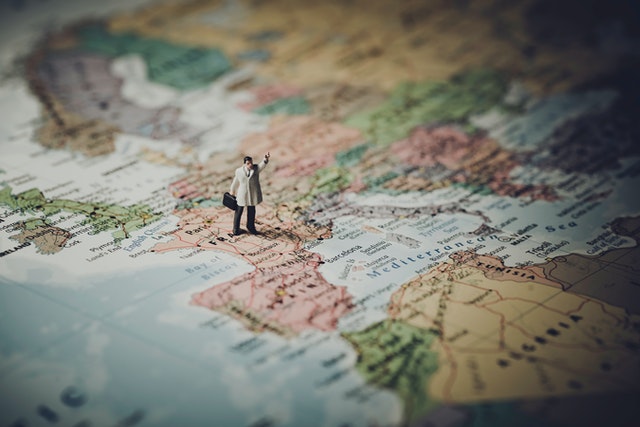French Vocabulary – Here, There, & Everywhere Posted by Tim Hildreth on Sep 15, 2020 in Grammar, Language, Vocabulary
A few weeks ago I linked to a post about the differences between encore and toujours. It got me thinking about other words in French that you can use for things that are frequent.

Here, there, & everywhere1Did you know that the ampersand (&, called une esperluette in French) comes from the merging of the e and t in the word et/and?!! Click to see the names of other signes de ponctuation en français.
Partout
When something isn’t just happening içi (here) or là-bas (there) but is happening everywhere, then it is happening partout.
C’est incroyable comme les gens sont partout sur leur portable aujourd’hui, même au théâtre ! / It’s crazy how people are on their mobile phones everywhere today, even in the theater!
Tout le monde
If eveyone is doing something, not just moi (me), or toi (you), elle ou lui (her or him) then tout le monde le fait (everyone is doing it)!
Tout le monde est prêt ? / Is everybody ready ?
Tout le monde aime les frites. / Everyone loves French Fries. 2Which everyone also knows are not actually French, but Belge!
But what if no one is ready … or worse, no one likes French Fries?!!
Personne
Personnne is a very flexible word in French. It can mean one thing … and the opposite! As a noun, personne means person, or individual … as in Il y a deux personnes à la porte (There are two people at the door.) or J’aimerais une table pour quatre personnes (I would like a table for four people).
But as a pronoun, personne means no one, anyone, or anybody. Je suis arrivé à l’heure, mais il n’y avait personne là (I arrived on time, but there was no one / there wasn’t anybody there.) Or Personne est venue au match à cause de la pluie (No one came to the game because of the rain.) Or Personne aime les frites.
Where and When
Here and Now
Photo by slon_dot_pics from Pexels
- 1Did you know that the ampersand (&, called une esperluette in French) comes from the merging of the e and t in the word et/and?!! Click to see the names of other signes de ponctuation en français.
- 2Which everyone also knows are not actually French, but Belge!

Build vocabulary, practice pronunciation, and more with Transparent Language Online. Available anytime, anywhere, on any device.



